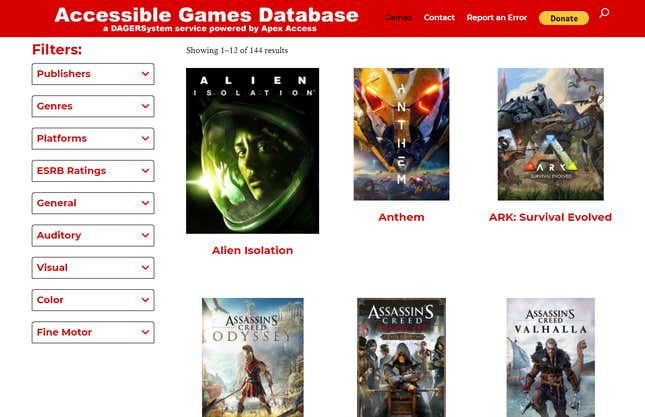As the conversation around video game accessibility becomes more prominent, it’s clear that some games just don’t take the necessary steps to open up the experiences they offer to players with disabilities. Recently Steven Spohn, the senior director of AbleGamers, criticized Deathloop on Twitter for its lack of accessibility features, which meant he couldn’t play and enjoy Arkane’s latest immersive sim. Now, in an effort to help disabled gamers find those games that do offer the specific accessibility options they need, the nonprofit organization DAGERSystem has created the Accessible Games Database.

The Accessible Games Database lets players easily search by specific accessibility options to receive recommendations for games with the desired features. It launched on October 1.
The database currently includes 144 games with accessibility options, including The Last of Us Part II, Control, Cyberpunk 2077, and Tetris 99. Alongside being able to search for games by publisher, genre, and platform, users can filter the database for auditory, visual, and fine motor features. Each of these filters have subcategories with which users can specify needs like volume control, adjustable interfaces, colorblind filters, and controller customization.
DAGERSystem, a nonprofit that creates accessibility resources for disabled gamers, acknowledged on Twitter that the database’s filters are not yet final, and its small team is working on adding more filters and games. The database also has a tab where players can report bugs and leave comments to the team. The organization encouraged its followers to suggest games they would like to add on Twitter.
The games industry is at its best when everyone can play. Hopefully solutions like the Accessible Games Database generate a sense of FOMO for game developers and publishers, encouraging them to design games with the goal of making sure that all players can enjoy the worlds they create.